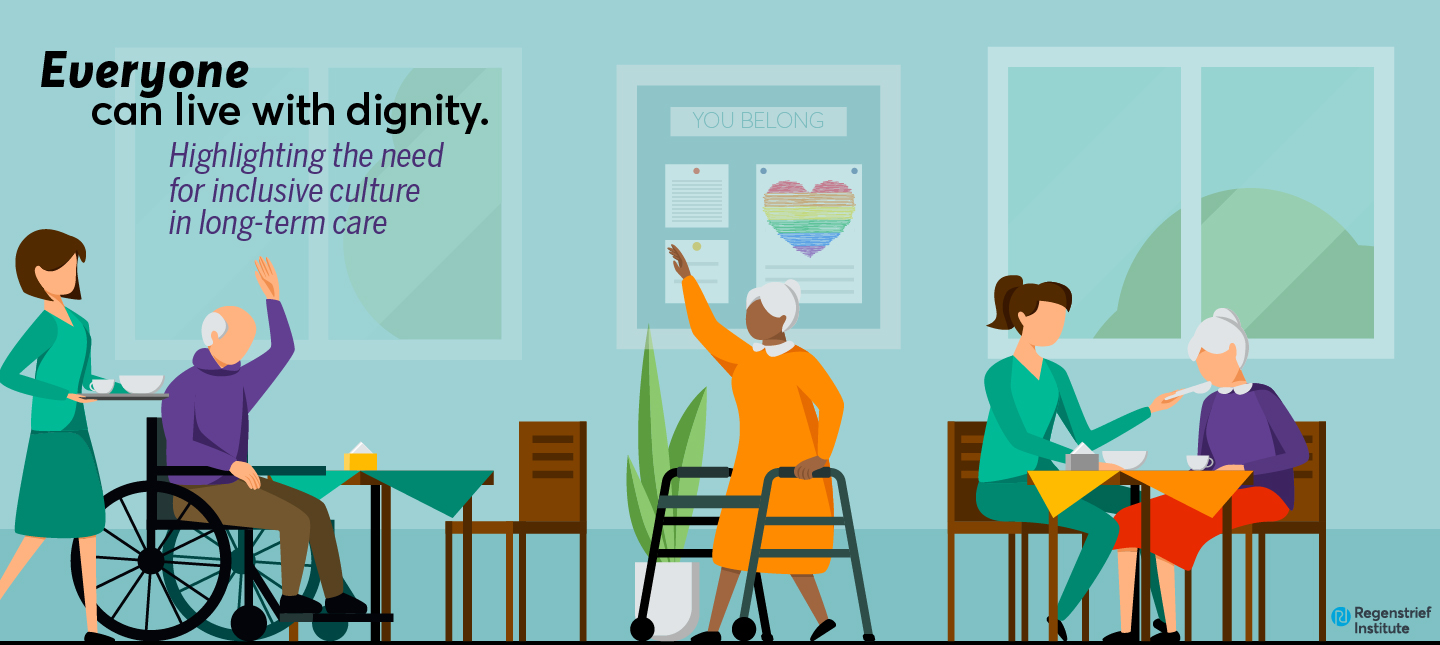There have been few studies of LGBTQ+ older adults residing in nursing homes. A new article from faculty of Regenstrief Institute and Indiana University explores care of the growing number of LGBTQ+ older adults living in these facilities. The paper highlights the experiences and needs of this population, outlines best facility practices and presents valuable resources for culturally appropriate and inclusive care.
Social isolation, limited community supports, dementia, decreased functional abilities, economic limitations and delays in care are among the many reasons an LGBTQ+ individual is admitted to one of the more than 15,000 nursing homes in the United States.
“We think about younger LGBTQ+ individuals and the challenges and risks of their lifestyles, but older adults in this population are often forgotten,” said article corresponding author and geriatrician Jennifer Carnahan, M.D., MPH, M.A., of Regenstrief Institute and IU School of Medicine. “They’ve experienced many health disparities. As these accumulate over a lifetime, we see the potential long-term ill effects of being from a marginalized population.
“To better care for these individuals, who are at increased risk of needing professional care and support, in this paper we shed a light on what we can expect as LGBTQ+ individuals age and reside in nursing homes. More and more LGBTQ+ older adults are comfortable being out with their providers, while many living in nursing homes fear unwanted disclosure of their sexual orientation or gender identity status. Their autonomy should be respected either way so they can age in an environment where they feel safe, where they feel comfortable and where they are able to live with dignity.”
Nursing home residents rely on facility staff and clinicians for day-to-day functions, such as toileting, bathing and eating, as well as medical care. This need increases the vulnerability of members of the LGBTQ+ community. There is a paramount need, Dr. Carnahan notes, for facilities to provide a welcoming and inclusive culture for all residents.
She and article co-author Andrew C. Pickett, MSEd, PhD, of Indiana University School of Public Health – Bloomington, enumerate best practice recommendations to decrease LGBTQ+ residents’ vulnerability to negative outcomes occurring due to system failures or staffing issues compromising care. These recommendations focus on several areas including:
- sexual orientation or gender identity status
- medications
- social isolation
- inclusive culture
- staff training
- advance care planning/surrogate decision making.
Specific examples, notes Dr. Carnahan, might include facility celebration of Pride Month, relevant books in the resident library and time release for staff training.
Drs. Carnahan and Pickett also provide an extensive list of resources for individuals, families and nursing home facilities.
“Postacute care and long-term care for LGBTQ+ older adults,“ an invited article, is published in the peer-reviewed journal Clinics in Geriatric Medicine in a special issue on care for LGBTQ+ older adults. The work was supported by a grant to Dr. Carnahan from the National Institutes of Health’s National Institute on Aging [grant K23AG062797].
Jennifer L. Carnahan, M.D., MPH, M.A.
In addition to her role as a research scientist with the Indiana University Center for Aging Research at Regenstrief Institute, Jennifer L. Carnahan, M.D., MPH, M.A., is an assistant professor of medicine at Indiana University School of Medicine.
About Regenstrief Institute
Founded in 1969 in Indianapolis, the Regenstrief Institute is a local, national and global leader dedicated to a world where better information empowers people to end disease and realize true health. A key research partner to Indiana University, Regenstrief and its research scientists are responsible for a growing number of major healthcare innovations and studies. Examples range from the development of global health information technology standards that enable the use and interoperability of electronic health records to improving patient-physician communications, to creating models of care that inform clinical practice and improve the lives of patients around the globe.
Sam Regenstrief, a nationally successful entrepreneur from Connersville, Indiana, founded the institute with the goal of making healthcare more efficient and accessible for everyone. His vision continues to guide the institute’s research mission.
About IU School of Medicine IU School of Medicine is the largest medical school in the U.S. and is annually ranked among the top medical schools in the nation by U.S. News & World Report. The school offers high-quality medical education, access to leading medical research and rich campus life in nine Indiana cities, including rural and urban locations consistently recognized for livability.
About IU School of Public Health-Bloomington
IU School of Public Health-Bloomington (SPH-B) is one of the largest schools of public health in the United States, offering top-ranked programs in a wide range of health-related fields. Accredited by the Council on Education for Public Health (CEPH), the school aims to promote health among individuals in Indiana, the nation, and the world through integrated multidisciplinary approaches to research and creative activities, teaching, and community engagement.











